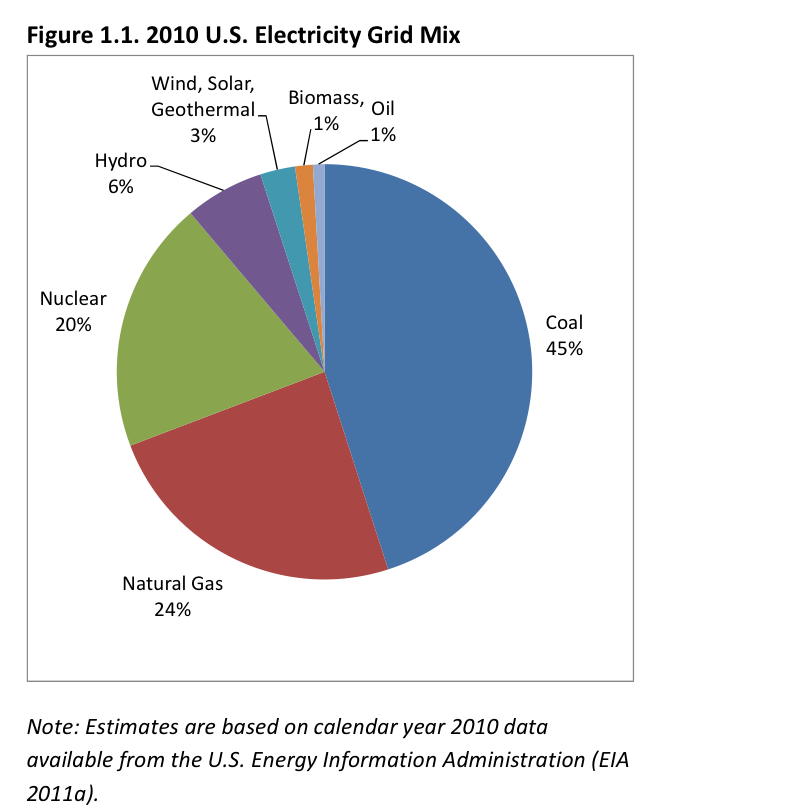UNION OF CONCERNED SCIENTISTS
Introduction
Over the past 100 years, we have become increasingly dependent on our cars for meeting life’s most basic needs. For most Americans, getting to and from work, bringing food home from the grocery store, or going to the doctor means using one’s car. This reliance on the automobile, and on the petroleum-powered internal combustion engine in particular, comes with significant costs. Our dependence on oil makes our overall economy and household budgets highly vulnerable to volatile oil prices. The pollutant emissions from our vehicles contribute to unhealthy air and global climate change. As the search for oil moves to more remote and difficult-to-access locations, the risk of serious accidents increases, as demonstrated by the 2010 Deepwater Horizon oil spill in the Gulf of Mexico. And defending our access to oil is a great burden to our nation’s finances, our military men and women, and their families.
Vehicles powered by electricity have the potential to reduce many of these problems. In most places, electric drive lowers the smog-forming and global warming pollution associated with vehicle use; and when powered by renewable resources, electric vehicles can nearly eliminate such pollution from vehicular operation. Electric vehicles powered by a clean electricity grid offer a key pathway to achieving the greater than 80 percent reduction in global warming pollution we need by mid-century to avoid the worst consequences of climate change. Powered by domestically produced electricity, electric vehicles (EVs) could be a significant part of reducing our oil dependence.
Today, we are starting to see EVs enter the market as the result of investments and policies to develop vehicles with zero tailpipe emissions. In 2011, U.S. consumers could choose from two mass-produced electric-drive vehicles made by two major auto manufacturers: the fully electric Nissan LEAF, powered solely by batteries, and the plug-in hybrid Chevy Volt, powered both by batteries and an internal combustion engine. In 2012, we expect to see additional options for consumers, including the plug-in versions of the Ford Fusion and Toyota Prius hybrids as well as the Honda Fit and Ford Focus battery- electric vehicles. The number of vehicles capable of being powered wholly or in part by electricity will continue to grow, as automakers plan to introduce more than 30 electric- drive models over the next five years (Baum & Associates 2010).
The wider availability of plug-in EVs is great news, but the growing number of options means that consumers need more information to make the best vehicle choices for their families, our national security, and the planet. For years, the bottom-line advice of the Union of Concerned Scientists (UCS) has been:
When buying a car, purchase the most fuel-efficient, lowest-emissions vehicle that meets the majority of your needs and fits your budget.
But evaluating the emissions and costs of an electric vehicle is not as simple as it is for conventional gasoline vehicles. Consumers need more information, both about the types of vehicles themselves and the electricity that powers them, to make the right choices.
This report aims to make those choices easier. Our analysis should help consumers (a) better understand some of the benefits and costs of owning an electric vehicle and (b) identify what to consider when evaluating EVs for their next car purchase. The report addresses the following three key questions:
• Is an electric car better than a gasoline vehicle on global warming emissions?
• How much does it cost to charge an electric vehicle in different cities around the country?
• How do EVs such as the Chevy Volt, Mitsubishi “i,” and Nissan LEAF compare with each other and with gasoline vehicles on global warming emissions and fueling costs?
To answer these questions, our analysis considers global warming emissions from driving on electricity in different regions across the United States, and compares the cost of driving on electricity with the cost of driving on gasoline in 50 of our largest cities.
About the Union of Concerned Scientists
www.ucsusa.org
“The Union of Concerned Scientists is the leading science-based nonprofit working for a healthy environment and a safer world. UCS combines independent scientific research and citizen action to develop innovative, practical solutions and to secure responsible changes in government policy, corporate practices, and consumer choices.”
Tags: Electric Car, Electric Vehicle, fuel savings, Global Warming Emissions, Union of Concerned Scientists







 RSS Feed
RSS Feed